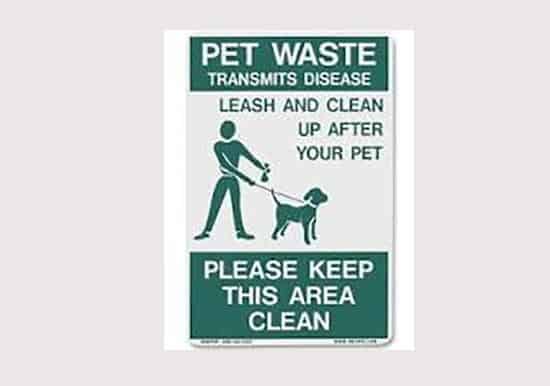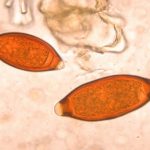Eating fecal material, called coprophagia, can be an extremely distressing issue for dog and cat owners. Whether it’s the pet’s own feces or someone else’s, the act itself is not always a pleasant thing for pet owners to witness.
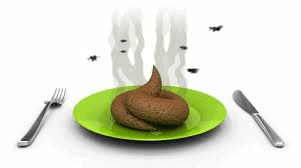
Why does this happen, and what can you, as a pet owner do about it? Below are some reasons behind this behavior and some strategies to stop this problem.
What’s behind Coprophagia
At certain stages of life, eating feces is actually a pretty normal and helpful habit. Nursing or lactating mothers will lick their babies frequently to keep them clean and help stimulate them to use the bathroom on their own.
For moms of big litters, this can be a big task, but rarely do we see any issues such as stomach upset or poor health from these mamas. Coprophagia can be normal behavior for young dogs and cats as well. Being around a mother who licks them clean can lead to the development of this habit.
It may also be an instinctive drive to ensure normal gastrointestinal (GI) tract development as babies are not born with bacteria in their GI tract, and some scientists theorize that neonates that eat poop are helping their body host normal healthy gut bacteria.
Unfortunately, eating feces, even when it is a natural occurrence, can become a difficult habit to break. Puppies may continue the habit as young adults, and although some may grow out of it on their own, you may need to seek guidance to help them.
Medical Reasons
There are also medical reasons for eating feces even if they normally wouldn’t or never did before. In some pets, poor diet, malnutrition, or not eating enough calories can lead a pet to eat feces.
Nutritional deficiencies within the diet are not as common because most commercially prepared pet foods are formulated to cover general nutritional needs.
Home-made diets are more likely to be an issue because it can be difficult to achieve a good balance of a pet’s dietary needs with limited ingredients and resources without the assistance of a veterinary nutritionist.
Other common causes of eating poop include intestinal parasites (worms) and poor nutrient absorption and digestion within the GI tract (e.g., chronic diarrhea, pancreatic issues. inflammatory bowel disease and so on).
Other medical causes of coprophagia exist but most are not terribly common. Pets will sometimes eat feces because their body thinks they are hungry when they actually are not. This is known as polyphagia.
Certain types of diseases can cause polyphagia, such as thyroid disease, Cushing’s disease, and diabetes mellitus. Cognitive dysfunction, a form of senility or dementia in older pets, may lead to coprophagia as well.
The good news with medical causes is that a trip to your veterinarian can help discover the problem.
With a good exam, a thorough questioning of your pet’s history and symptoms, and screening tests such as lab work and fecal examinations, your veterinarian will likely be able to pinpoint what is going on and help you decide what to do next to keep your pet healthy.
Behavioral Reasons
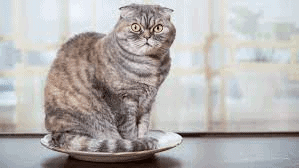
Many pets eat feces because of an underlying behavioral issue. This seems to be more common than coprophagia in pets with medical issues.
Even if the problem started out innocently enough, such as with normal puppy development, it can quickly become a habit or compulsive issue.
Some pets literally develop a taste for fecal matter, they enjoy eating it, and that will make the habit much harder to break. So what are some common behavioral issues that can cause coprophagia?
Common behavioral causes include anxiety, such as separation anxiety, and stress, such as when a pet’s normal daily routine is broken up by a new pet in the house or moving to a new home.
Boredom or a lack of playtime with owners can also lead to coprophagia. This is especially common in young puppies who are confined or crated too frequently during the first few months of their lives.
This is their socialization period of growth and being kept to themselves too often during this period has been shown to contribute to future issues with coprophagia.
Another somewhat unexpected behavioral cause of coprophagia comes in the form of pets using the bathroom where they shouldn’t, and eating the feces to avoid chastisement. This could start out with accidents because of stomach upset, which then turns into a coprophagia habit.
What Can Owners Do?
Try to prevent your pet from eating feces by picking it up in the yard or removing it from the litterbox as soon as possible. An automatic litterbox that scoops the feces immediately after your kitty goes can be helpful in these situations.
Another option is to keep a harness or leash on your pet when they go outside so you can quickly pull them away from feces that haven’t been picked up.
Try slowing down your pet’s eating, which may help your pet digest food better and improve feces consistency, with chew toys placed in the food, slow-release food toys, or bowls that are irregularly shaped and made specifically for pets that eat too fast.
Consider feeding at set times during the day so you can predict when your pet will need to go. This may help you avoid constant monitoring to prevent your pet from eating their own feces.
Increase your pet’s exercise and activity level. Provide numerous opportunities to play and interact with you and your family. Offer toys that are fun to chew on and play with. This can be especially helpful for pets with anxiety or boredom-induced coprophagia.
A diet change may be helpful if your pet’s current food isn’t of the best quality. Changing to a diet higher in fiber may also be helpful. If your pet is eating the feces of another pet, consider changing their diet as well.
It will be important to discuss a dietary change with your veterinarian to determine if this is necessary and to get the veterinarian’s opinion on the best dietary options and how to safely switch to a new food.
Preventive medication and food additive options that change the flavor of the feces deter some pets from eating it. Be sure to feed them to the pet whose feces is being eaten.
Forbid, probiotics, charcoal dog treats (for dogs only), canned spinach, and fresh pineapple have all been shown to occasionally work as a preventive option for changing the feces flavor.
Adolph’s Meat Tenderizer has also been shown to be effective as a preventive for some dogs, but its use may lead to stomach upset.
Medication options for anxiety or compulsive behavioral issues can sometimes be rewarding. Your veterinarian will be able to determine what may help and if your pet is healthy enough to try these types of medications.
Avoid harsh punishment or scolding your pet when they eat the feces. This can worsen their anxiety and may encourage them to continue to eat feces if they are doing so to avoid punishment.
Always highly reward your pet when they do not eat feces at a given opportunity. This will encourage them to stop the habit.
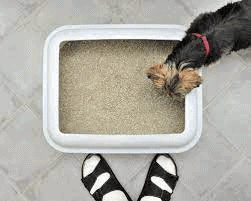
Consequences
While coprophagia is not a major medical concern, there are risks. If your pet is eating the feces of an animal taking medication, your pet may accidentally absorb some of the medication.
This is rare, but documented cases of pets getting sick from pain medication and thyroid medication in another dog’s feces have occurred. Your pet is also at a higher risk for infection with certain diseases, such as E. coli or Salmonella, or developing intestinal parasites.
Unfortunately, this also puts you, the owner, at a slightly higher risk as well. Avoid letting your dog lick you and wash your hands frequently until you can get the problem under control.
It is important to understand that coprophagia is a difficult habit to break. Patience and trying many tactics can provide the most likely improvement.
Your veterinarian should be able to help you with tips and strategies as you work through the problem. Don’t ever hesitate to call your veterinarian with questions and concerns.
